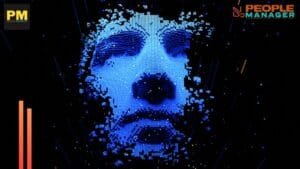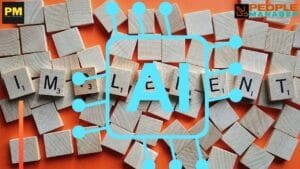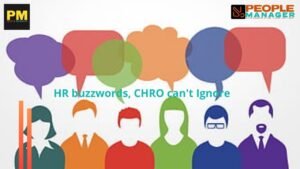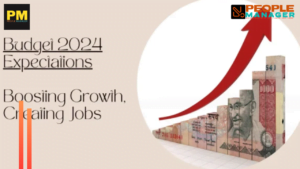Dr. Vivek Trivedi on Enabling Tech to HR & Business Success
Dr. Vivek Trivedi is the Founder, CEO at Shikshakji.com. Zoho People Partner, KEKA Authorized Partner, Zoho Recruit Partner, Global HR Mentor, Top 50 HR Tech Leader, HR ICON -2023, HR Influencer-2023 & World Record Holder. He comes with 20+ years of experience in the human resource function. In Shikshaji.com, he spearheads the Innovation and Business Growth initiatives, and provides strategic direction for the company's growth.
He is an HR tech advocate who champions HR transformation and designs strategies SMEs Growth in a highly competitive market. Prior to founding Shikshakji.com, he has worked with JSW, GMR, and EMPI Technologies.He is an alumnus of IIM Bangalore.
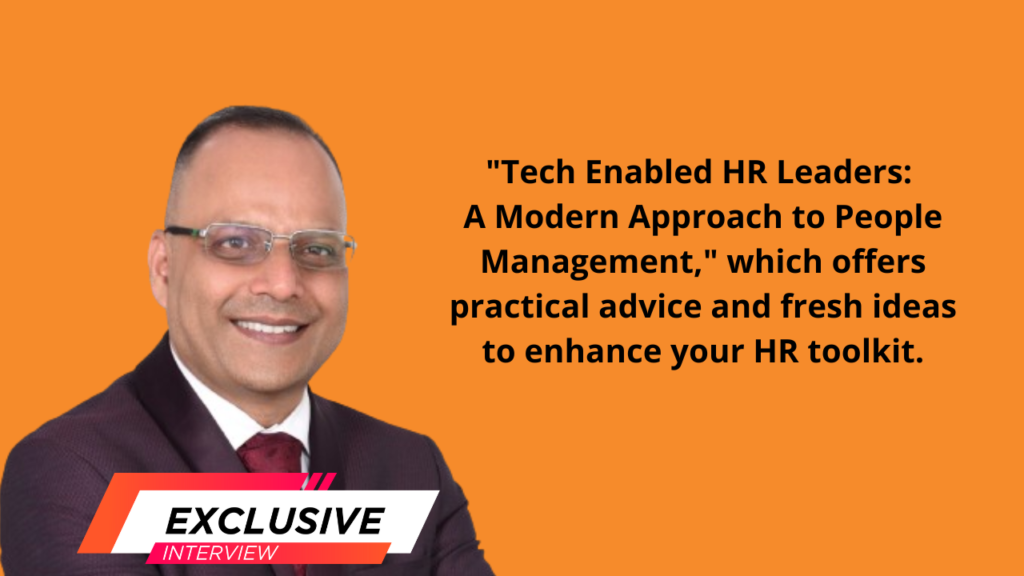
Q. Can you tell us about your journey in the HR field and how you became recognized as an as an HR thought leader?
Ans. : It is true what Steve Jobs said: you can only make connections by looking back. Reflecting on my path, I see my time with Fortune 500 companies, holding senior HR leadership roles, and enjoying a fulfilling career. But the questions that always lingered were “What next?” and “Why am I doing this?” This led to my entrepreneurial journey.
I wanted to create something for those lacking access to the best knowledge. That’s how Shikshakji.com began during the pandemic. It was a venture aimed at leveraging technology to support people in HR. The name ‘Shikshakji’ comes from my family’s educational background—my grandfather was a vice-chancellor, my father a principal, and I was born on Teachers’ Day. Connecting these dots, our team chose ‘Shikshakji’ as the name.
Q. Your journey to creating a world record is fascinating. What inspired you to combine technology and HR practices in such a ground-breaking way?
Ans.: The idea was to share best practices that integrate technology with HR. We collaborated closely with the OMG group and other world record teams, drawing inspiration from global tech initiatives like Google Gemini, and Microsoft’s co-pilot, as well as chat GPT. This collaboration led to the creation of a world record and recognition by the World HRD Congress as a top HR Tech leader.
My educational heritage has certainly influenced my path. The concept of moving from the boardroom to the courtroom was a concern, but I wanted to shift the focus to transforming the boardroom into a showroom. This means implementing strategies from the top down.
WATCH- EXCLUSIVE INTERVIEW WITH DR. VIVEK TRIVEDI
Q. Could you elaborate on the 3P methodology (paperless, Popular, Productive) and how it can benefit HR?
Ans: Balancing HR and technology is essential for sustainable growth. I’ve developed a 3P methodology that addresses critical areas:
- Popular HR:
- HR should be popular, not just within the organization but also externally. It’s about creating a positive perception of HR.
- By aligning with the United Nations’ ESG guidelines, we emphasize environmental sustainability and governance.
- Popular HR fosters trust, attracts talent, and enhances the organization’s reputation.
- Productive HR:
- HR should never be seen as a cost center. Instead, it must contribute to the organization’s productivity and bottom line.
- We transform HR business partners (HRBPs) into strategic partners (HRSPs). HRSPs actively drive business outcomes.
- Productive HR ensures efficient processes, streamlined workflows, and data-driven decision-making.
- Paperless HR:
- Going paperless reduces administrative burden and increases efficiency.
- Digital transformation allows HR professionals to focus on strategic initiatives rather than paperwork.
- Paperless HR aligns with the global trend toward digitization.
Q. How does the paperless aspect of your methodology contribute to the efficiency of HR processes?
Ans.: A conclusive action plan for HR & business leaders is as follows:
- Business owners and founders can focus on their core business when HR becomes a catalyst for change.
- By adopting the 3P methodology, they can drive profitability, hire more people, and contribute to industry growth.
- Ultimately, this approach creates a positive ripple effect, impacting the entire ecosystem—from the organization to the country and beyond
Q.In what ways do you make HR tech solutions popular and accessible to CHRO’s, considering their unique challenges and constraints?
Ans. This methodology has been implemented and the impact it has had so far is numerous. The 3P methodology and its transformative effects on the HR ecosystem. By God’s grace, we’ve managed to transition 70% of our clientele to a completely paperless approach. The journey towards 100% is ongoing. The impact is significant—our clients save time and resources, which they can reinvest in strategic HR activities. This transformation has not only streamlined operations but also positioned HR as a strategic partner in the business, leading to a more agile and responsive organization.
Q. Can you provide examples of how productivity is enhanced through your approach to MSMEs?
Ans.: Certainly! Let’s dive deeper into the 3P methodology and its benefits:
- Paperless:
- Going paperless is not just about cost savings; it’s about environmental responsibility. By reducing paperwork, we contribute to sustainability.
- For employees, it means less hassle during onboarding and other processes.
- For business owners, it streamlines operations and allows scalability, especially in a hybrid or remote work environment.
- The transition to paperless is easier than ever, especially with the shift from Cloud to AI.
- Productive:
- Productivity is directly linked to being paperless. When HR spends less time on paperwork, they can focus on strategic initiatives.
- HR professionals can build knowledge repositories, embrace high-tech tools, and engage in learning and development.
- By optimizing HR’s presence, productivity naturally increases across the organization.
- Popular:
- Popular HR is about simplifying processes for employees. When HR makes life easier, employees perceive them as partners.
- As a strategic partner, HR understands pain points and implements best practices. This drives change within the organization.
The 3P approach is adaptable at all levels, from boardroom executives to operators.
Q. What are some common HR challenges that CHRO’s face, and how does your methodology address these challenges?
Ans. The main challenge is adapting to and integrating new technologies within their organizations. CHROs and industry leaders must be agile learners and open to change. They should use technology to enhance HR functions and address issues like talent attraction and retention. By adopting a strategic approach and being open to change, they can overcome these challenges and drive their organizations forward. The shift to a tech-forward, paperless workplace is revolutionizing HR. It allows for a multi-level solution approach, making HR practices globally accessible and focused on skill development. Previously, you needed several people to manage thousands of paper-based tasks. Now, technology enables us to streamline these processes, significantly aiding the HR domain and enhancing efficiency.
Q. How do you ensure that your HR tech solutions are scalable and adaptable to the evolving HR needs?
HR tech solutions are applied in various ways to enhance efficiency. Popular methods include using cloud-based platforms for data management, AI for talent acquisition and retention, and analytics for performance tracking. These tools not only streamline HR processes but also provide strategic insights that drive organizational success.
Q. What role do you see emerging technologies like AI and machine learning playing in the future of HR ?
Ans. Emerging technologies are set to play a pivotal role. They provide clarity on the ‘why’ behind actions, which is often more important than the ‘what’ and ‘how.’ For tech enablement and AI-driven strategies, even MSMEs can benefit significantly. These technologies offer scalable and adaptable solutions that can meet the unique needs of any industry, enhancing HR functions and contributing to overall business growth.
Q. How do you balance the need for automation and technology with the human element in HR management?
Ans.: Automation is necessary for efficiency, but it must be balanced with human insight and empathy. HR is about people, and technology should be used to enhance our understanding and management of human resources, not to diminish the human touch. The future of HR lies in leveraging technology to complement and elevate the human aspects of the job.
Q. Could you share some success stories or case studies of MSMEs that have implemented your 3P methodology?
Ans.: Certainly. One of our wellness clients faced challenges implementing technology due to misconceptions about cost and relevance. We demonstrated that even small businesses could benefit from our 3P methodology. By focusing on practical, cost-effective solutions, we helped them streamline their operations and embrace technology, proving that it’s not just for Fortune 500 companies but can be a game-changer for businesses of all sizes.
Q. What advice would you give to MSME business owners who are hesitant to adopt HR tech solutions?
Ans.: My advice is to embrace adaptability and be open to continuous improvement. Whether you’re a startup, an MSME, or a large corporation, there’s always room for growth. The key is to overcome the fear associated with new technologies and focus on the potential ROI. By adopting methodologies like our 3P approach, businesses can improve their adaptability and drive success.
Q. What do you envision for the future of HR support, and how do you plan to contribute to that vision?
Ans.: The future organizations, I envision an HR landscape where technology not only streamlines processes but also empowers strategic decision-making. My contribution will be to facilitate access to affordable of HR support is deeply intertwined with technology. For startups, MSMEs, and mid-sized, scalable HR tech solutions that can adapt to the unique needs of each organization. This includes leveraging AI for data-driven insights and fostering a culture of continuous learning and adaptability.
Q. Finally, what are your key takeaways or messages that you hope CHRO’s will gain from this interview regarding HR tech adoption and implementation?
Ans.: The key takeaways for CHROs and business owners are:
Gap Analysis: Begin with a thorough gap analysis to identify the most pressing issues within your HR processes.
- Resource Assessment: Evaluate the resources available to you, including free and low-cost solutions that can address your needs.
- Unique Solutions: Don’t be afraid to forge your own path. While recommendations are valuable, ultimately, trust your instincts and choose solutions that align with your business’s unique challenges and goals.
- Embrace Change: Be open to change and willing to adopt non-traditional approaches. Innovation often comes from stepping outside of comfort zones.
- Start small: Implement changes incrementally. Focus on making small, consistent improvements rather than attempting to overhaul everything at once.
Remember, the journey to adopting HR Tech is not about finding a one-size-fits-all solution but about finding the right fit for your organization’s specific needs and culture.
Stay tuned, to PropleManager.co.in for further updates on the evolving workplace paradigm.
Value our content… contribute towards our growth. Even a small contribution per month would be of great help to us. Since our establishment, we have been serving the industry through daily news and updates.
Our content is free for all, and we plan to keep it that way
Support the People Manager. Pay Here
- 59 trending HR buzzwords, CHRO can’t ignore - July 24, 2024
- India’s $5 Trillion Dream: Can Budget 2024 Deliver Growth and Jobs? - July 22, 2024
- People Manager Concludes Largest Inclusive Workplace Conference: Engage-2024 - July 18, 2024



